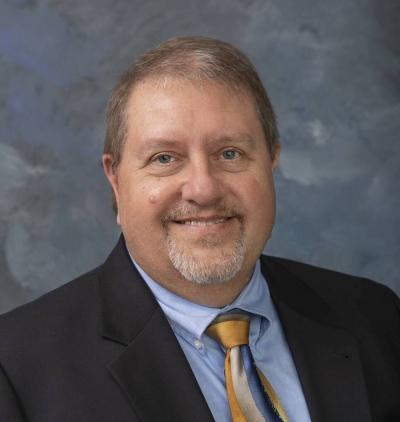Summary
Across the U.S., wastewater and sanitation systems are failing, contaminating water supplies and harming ecosystems.
Many rural areas across the country, such as the Black Belt region in Alabama, do not have access to sewers and centralized wastewater treatment offered through public utilities. The vast majority of septic systems in this region function poorly or are failing due to factors such as unsuitable soil conditions, seasonal flooding and rising temperatures.
This project is piloting a new approach to wastewater treatment in rural Alabama to demonstrate that improved wastewater treatment technologies and management models can yield health, economic and environmental benefits for rural communities in the U.S. The project is testing and scaling wastewater treatment systems in several communities in the region. These systems will connect neighboring homes and businesses on a single system that collects, treats and re-uses water, reducing upkeep costs. The project will collect data before and after the systems are installed to measure the health and environmental impact of improved wastewater treatment.
The project will also guide communities and local governments across the United States on how to use newly-available public funding to improve their wastewater infrastructure. It will work to identify the wastewater technology best suited to different communities based on factors like soil, geography and existing wastewater systems. It will also create metrics to identify under-resourced communities across the United States most urgently in need of improved wastewater systems to ensure that federal agencies like the Environmental Protection Agency effectively allocate public funding to them.
The project aims to provide immediate benefits to households at the pilot sites, including demonstrable improvements in public health and a reduction in toxic discharges to the environment. It will also provide a model for transitioning to more resilient and sustainable wastewater infrastructure, which could be deployed throughout Alabama and the U.S.
In Partnership With:
- Black Belt Community Foundation
- Consortium for Alabama Rural Water & Wastewater
- Rural Studio, School of Architecture, Planning and Landscape Architecture at Auburn University
- University of Alabama
- University of California, Irvine
- University of North Carolina
- University of South Alabama
Statistics
- 90%of septic systems in Alabama’s Black Belt are functioning poorly or failing due to unsuitable soil conditions
- $10,000 to $30,000is the average cost of installing a septic system for a single household
- 80 millionU.S. residents lack access to sanitary sewers
Team
-

Maura Allaire
University of California, IrvineProject LeadRead Full Bio arrow_right_altMaura Allaire is an Assistant Professor at the University of California, Irvine. With expertise in water resource economics, her research focuses on the development of improved strategies...
-

Amal Bakchan
Texas A&M UniversityProject Team (former)Read Full Bio arrow_right_altAmal contributed to the project from 2021-2023 as a postdoctoral fellow at the Department of Civil, Coastal, and Environmental Engineering at the University of South Alabama.
-

Jillian Maxcy Brown
University of AlabamaPostdoctoral FellowRead Full Bio arrow_right_altJillian Maxcy-Brown is currently a postdoctoral fellow at the Department of Civil, Construction and Environmental Engineering at the University of Alabama. She holds a Ph.D. in Civil Engineering...
-

Joe Brown
University of North CarolinaProject LeadRead Full Bio arrow_right_altDr. Brown is an Associate Professor of Environmental Sciences and Engineering who focuses on detection methods for pathogens and pathogen indicators in the environment, water and sanitation...
-

Lacey Christian
University of South AlabamaProject TeamRead Full Bio arrow_right_altLacey Christian is a Research Project Coordinator for the Department of Civil, Coastal, and Environmental Engineering at the University of South Alabama. She has an interest in applying...
-

Mark Elliott
University of AlabamaProject LeadRead Full Bio arrow_right_altDr. Elliott is an Associate Professor in the Department of Civil, Construction and Environmental Engineering focused on understanding the challenges and opportunities of water...
-

Olivia Harmon
University of North Carolina at Chapel HillProject TeamRead Full Bio arrow_right_altOlivia Harmon is an Environmental Sciences and Engineering PhD student at the University of North Carolina at Chapel Hill, researching wastewater infrastructure in rural Alabama.
-

Todd Hester
University of AlabamaProject TeamRead Full Bio arrow_right_altTodd Hester is Project Coordinator and Field Manager in the Department of Civil, Construction and Environmental Engineering at The University of Alabama. He has spent the last 12...
-

Upmanu Lall
Columbia UniversityProject LeadRead Full Bio arrow_right_altDr. Lall is the Director of the Columbia Water Center and the Alan and Carol Silberstein Professor of Engineering, and the Chair of the Dept. of Earth & Environmental Engineering at...
-
Megan Lott
University of North Carolina at Chapel HillProject TeamRead Full Bio arrow_right_altMegan Lott is a postdoctoral fellow in the Department of Environmental Sciences and Engineering at the University of North Carolina at Chapel Hill. As a public health microbiologist, Megan...
-

Sara Schwetschenau
Rand CorporationProject Team (former)Read Full Bio arrow_right_altSara contributed to the project from 2021-2022 as a postdoctoral research scientist at the Columbia Water Center. She completed her Ph.D. at Carnegie Mellon University in the department...
-

Bihu Suchetana
Department of Earth and Environmental Engineering, Columbia UniversityVisiting Associate Research ScientistRead Full Bio arrow_right_altBihu Suchetana is a visiting associate research scientist at the Department of Earth and Environmental Engineering, Columbia University and an assistant professor (on sabbatical) at the...
-

Kevin White
University of South AlabamaProject LeadRead Full Bio arrow_right_altDr. White is Professor and Chair of the Department of Civil, Coastal and Environmental Engineering with many years of experience studying onsite and small-community wastewater management/technology...
Go Deeper
Publications
Jillian Maxcy-Brown, Mark A. Elliott, Leigh Anne Krometis, Joe Brown, Kevin D. White, Upmanu Lall. Making waves: Right in our backyard- surface discharge of untreated wastewater from homes in the United States, Water Research, Volume 190, 2021, 116647, ISSN 0043-1354.
Sara E. Schwetschenau, Yunus Kovankaya, Mark A. Elliott, Maura Allaire, Kevin D. White, and Upmanu Lall. Optimizing Scale for Decentralized Wastewater Treatment: A Tool to Address Failing Wastewater Infrastructure in the United States. ACS ES&T Engineering. 2023 3 (1), 1-14.
Joe Brown, Charisma S Acey, Carmen Anthonj, Dani J Barrington, Cara D Beal, Drew Capone, Oliver Cumming, Kristi Pullen Fedinick, Jacqueline MacDonald Gibson, Brittany Hicks, Michal Kozubik, Nikoleta Lakatosova, Karl G Linden, Nancy G Love, Kaitlin J Mattos, Heather M Murphy, Inga T Winkler. The effects of racism, social exclusion, and discrimination on achieving universal safe water and sanitation in high-income countries. The Lancet Global Health. Volume 11, Issue 4, 2023, Pages e606-e614,ISSN 2214-109X.
Jillian Maxcy-Brown, Mark A. Elliott, Bennett Bearden. Household level wastewater management and disposal data collection in the U.S.: the history, shortcomings, and future policy implications. Water Policy 1 September 2023; 25 (9): 927–947.
Jillian Maxcy-Brown, Drew Capone, Mark A. Elliott. (2023). Characterizing the nature and extent of access to unsafely managed sanitation in the United States. Nature Water, 1, 915-928.
Elliott, M.A., A. Bakchan, J. Maxcy-Brown, V. D’Amato, D. Hallahan, K.D. White, C. Stallman, S. Bradley (2023) Sustainable Wastewater Management for Underserved Communities using Federal Infrastructure Funds: Barriers, Bottlenecks, and Tradeoffs. Water Security.

